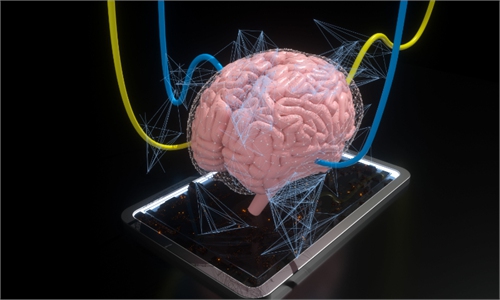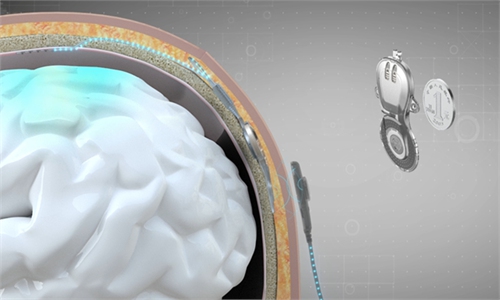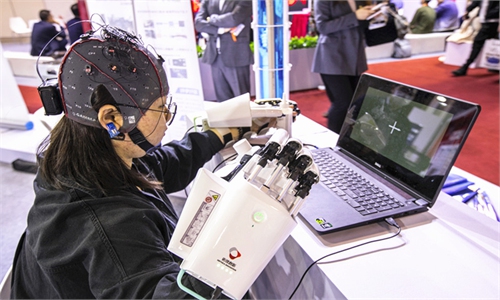IN-DEPTH / IN-DEPTH
China’s domestic BCI systems prove effectiveness, potential to bridge biological and artificial intelligence
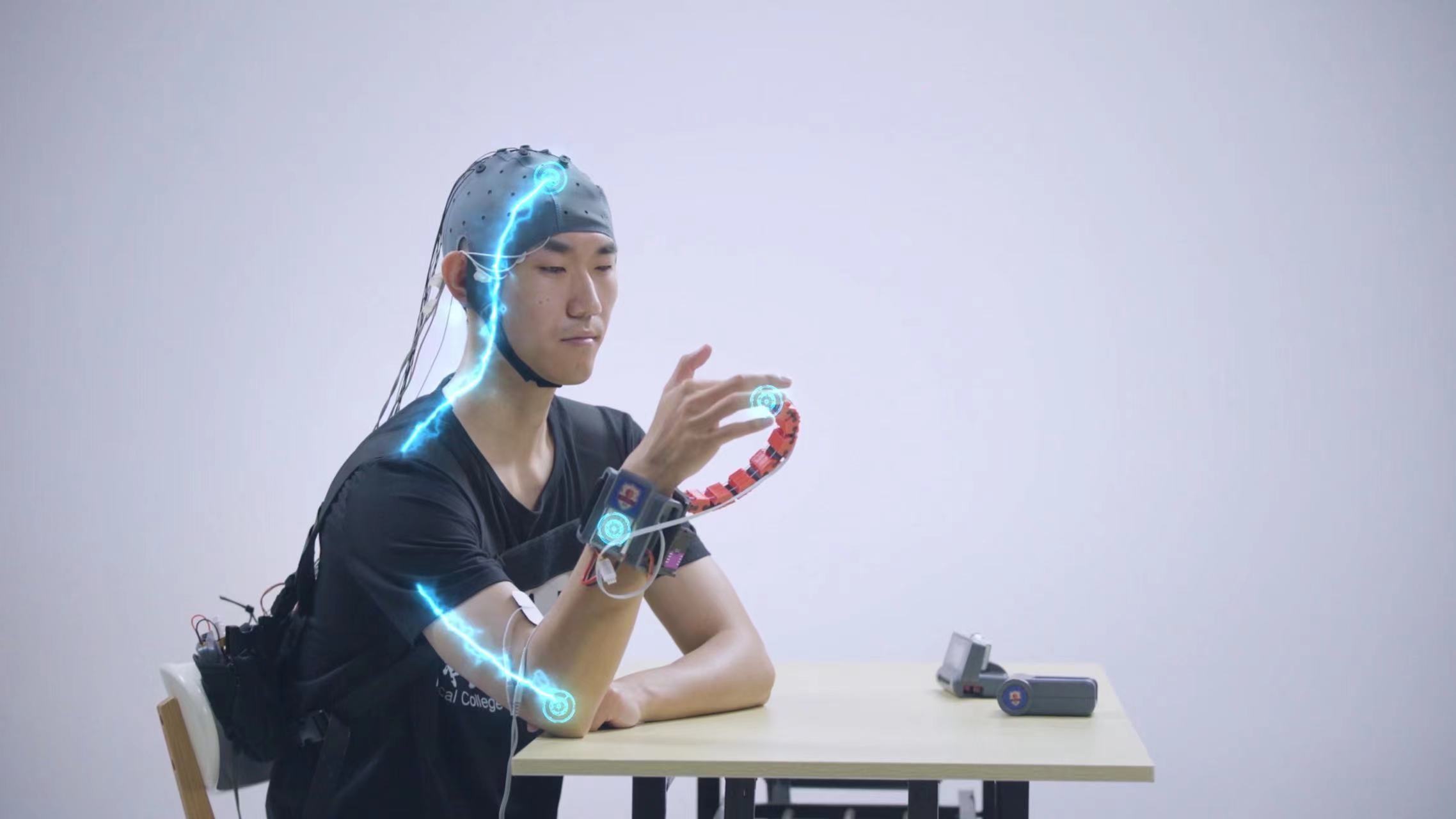
Photo: Courtesy of Tianjin University
Chinese scientists have demonstrated their brain-computer interface (BCI) systems are successful and effective in rehabilitation, and have the potential to bridge biological and artificial intelligence.
In a video revealed by the China Central Television (CCTV) on Saturday, a young man surnamed Bai was trying to control his wheelchair by his mind.
What Bai needed to do was to focus his attention and imagine the movements. "The system is quite sensitive," he told CCTV.
In December 2023, a wireless minimally invasive BCI system developed by the Tsinghua team, also known as NEO, was implanted into the brain of Bai, 35, who had been paralyzed for years following a car accident.
Bai can now control a computer with his own thoughts and brain signals. He is also able to control a wheelchair with his mind. These prove that signal control of BCIs has been successful, Hong Bo from the School of Medicine with Tsinghua University who leads the research, told the Global Times.
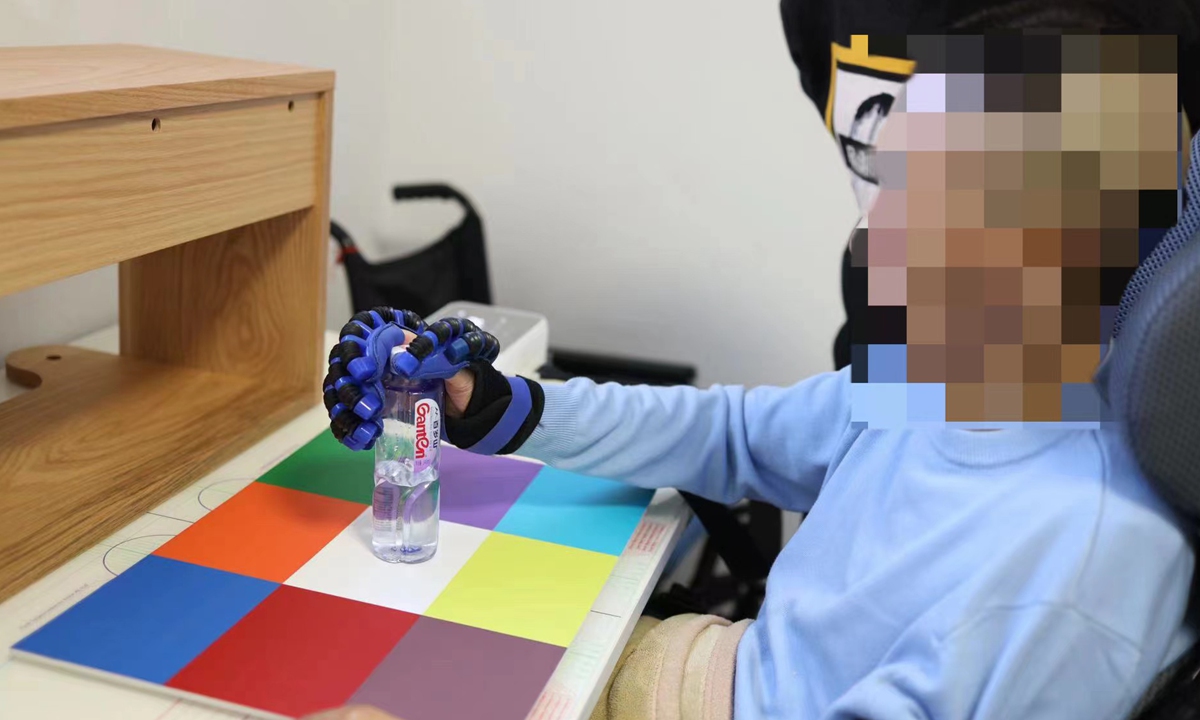
Photo: Courtesy of Tsinghua University
Another patient, surnamed Yang, 54, who has been paralyzed for 14 years, also received the implantation surgery of the Tsinghua team's BCI system in 2023. He is now able to proficiently use his mind to control the exoskeleton glove. His hands have also regained some of its grabbing function, Hong said.
These all prove the effectiveness of our BCI system. Looking ahead, the team will, subject to regulatory approval, further expand the scale of medical clinical trials on the path to providing a commercially viable service to benefit the greatest number of patients, he noted.
BCI refers to the technology that establishes a direct connection pathway between the human brain's nerves and electronic or mechanical devices, to achieve information interaction and functional integration between the nervous system and external devices.
Many view the BCI technology as holding the key to an "era of neuroscience." According to reports of 21jingji.com, the global BCI market is expected to reach $3.3 billion by 2027, with an annual compound growth rate of about 14 percent in seven years.
Chinese scientists have achieved breakthroughs in domestic research and development in BCI technology in recent years and actively applying the technology in rehabilitation, epilepsy, and depression treatment. Research in technology in China has now reached a crucial stage, transitioning from the laboratory to the market. Industry observers noted that this shift is expected to play a significant role in driving economic development and creating new competitive advantages in the future.
The BCI technology encountered controversies in safety and ethics after Elon Musk said in January 2024 that his BCI company, Neuralink, had successfully completed the first human brain implantation surgery of its invasive BCI device. Concerns increased after the company revealed in May that a number of the implant's connective threads retracted from the brain a few weeks after the surgery, causing a reduction in the signals the device could capture.
In previous interviews, Hong told the Global Times that compared with Neuralink's invasive technology, his team's wireless semi-invasive BCI technology offers higher levels of safety and a longer product lifespan.
"I hope that the two recipients of our implants can achieve observable neurological repair within six months to one year," Hong said.
At the Tianjin Huanhu Hospital, the clinical research on a wearable robotic finger, also known as the Lingxi Finger, developed by a neuroengineering team from Tianjin University has also been ongoing for over half a year. A patient surnamed Qiao, who lost the ability to grip with his left hand due to acute cerebral infarction, is participating in the clinical research.
The Lingxi Finger is a non-invasive BCI rehabilitation system developed by the Medical School at Tianjin University. By putting a BCI cap on the patient's head, the system can help the patient to actively control machine fingers worn on his hand by reading his brainwave information. Research data has confirmed that this system can greatly accelerate the recovery progress of patients, according to the university.
Chinese scientists are also exploring the most cutting edge area of BCI technology.
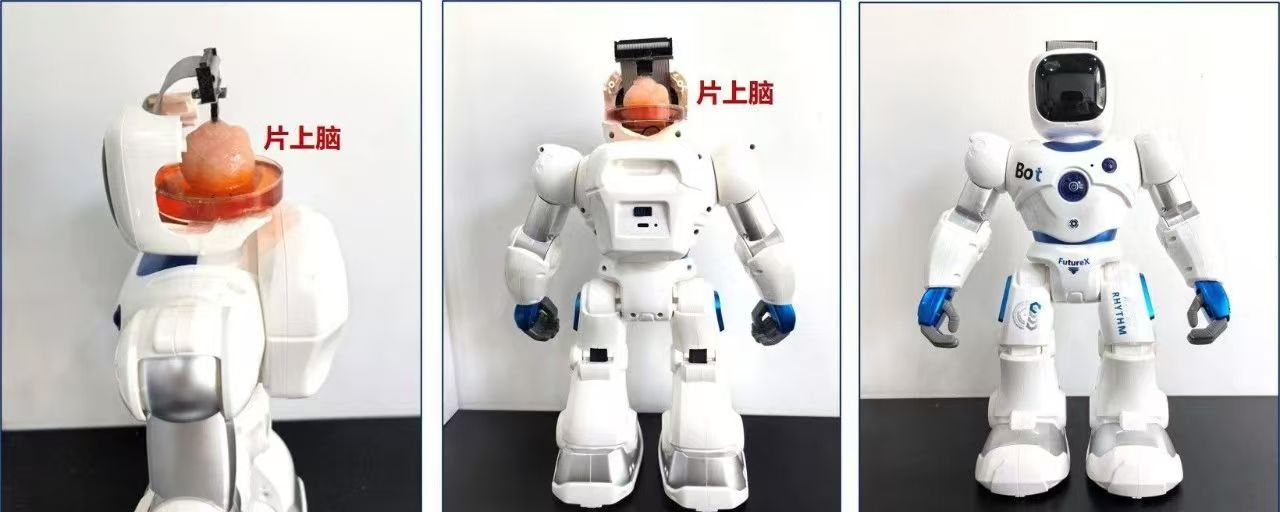
Photo: Courtesy of Tianjin University
The Global Times learned from the university that a team from the Haihe Laboratory of Brain-Computer Interaction and Human-Machine Integration, led by Tianjin University and their collaborators from the Southern University of Science and Technology have successfully developed an open-source brain-on-a-chip (BOC) interface system, MetaBOC, which enables a "lab-grown brain" to conduct unmanned control of robots to perform tasks such as obstacle avoidance, tracking, and grasping.
BOC is formed by coupling a lab-grown brain with electrode chips. As an emerging branch of brain-computer interface, the BOC interface refers to a technology that enables bidirectional interaction between a lab-grown brain and external devices through encoding and decoding techniques and stimulation feedback.
BOC interface system technology is widely believed to play a revolutionary role in the development of cutting-edge technologies such as hybrid intelligence and brain-like computing.
Li Xiaohong, a professor at the Medical School at Tianjin University and the head of the on-chip BCI team said, a lab-grown brain has the advantages of low power consumption and fast learning speed. Moreover, the brain-on-a-chip interface system represents a transformative approach to bridging biological and artificial intelligence.
MetaBOC is also the world's first full-chain, open-source brain-on-a-chip interface system designed to enable closed-loop interaction between a lab-grown brain and external devices. Li showed the Global Times MetaBOC's efficacy in performing intelligent control tasks, such as robotic obstacle avoidance, in both virtual environments and real-world scenarios.
Li said MetaBOC represented a significant advancement in the field of BOC technology, offering a versatile platform for exploring the computational mechanisms of biological intelligence.
At a forum in April in Beijing, Gao Xiaorong from the Tsinghua Laboratory of Brain and Intelligence said, "The interaction between AI and BCI is bidirectional. A certain part of the development of BCI, especially in terms of algorithms, is aided by advancements in AI technology, allowing BCI developers to extract brainwave information. At the same time, BCI technologies can also promote the development of AI. For example, the uniqueness of brainwave information will further enhance the operational capabilities of AI and even influence its evolutionary direction."
At the forum, the Chinese Ministry of Industry and Information Technology also called on national colleges, institutes, and companies to cooperate to promote a combination of the two fields and accelerate the research and development of core technologies and products.
